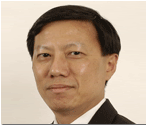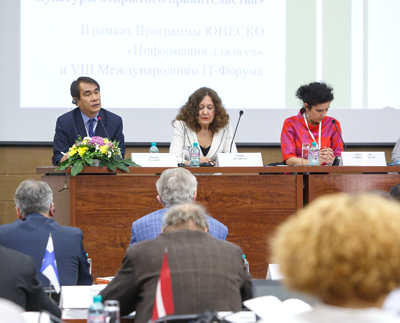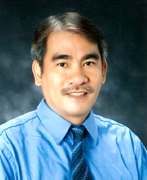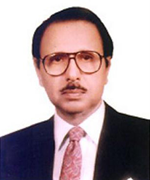
Jul 4, 2016 | News
 Dr. Ang Peng Hwa, AMIC Chairman d’Honneur, will serve as the keynote speaker of the International Conference on Media, Communications, and Sociology (iCOMICOS). It will be held in Yogyakarta, Indonesia on November 18-19, 2016.
Dr. Ang Peng Hwa, AMIC Chairman d’Honneur, will serve as the keynote speaker of the International Conference on Media, Communications, and Sociology (iCOMICOS). It will be held in Yogyakarta, Indonesia on November 18-19, 2016.
Conference theme is Questioning Locality: Community, Movement, and Global Challenge.
iCOMICOS is being organized by the Faculty of Social and Political Sciences of the Universitas Atma Jaya Yogyakarta.
The forum will examine the impact of the ICT revolution on social movements within and outside geographic and socio-cultural borders. New ICT tools and applications have empowered non-state social actors, especially social activists who are actively pursuing change in society.
Among the sub-themes to be featured in the forum are media praxis, journalism revolution, creative marketing cooperations, customized stakeholder engagement, community-based business, innovative business communication, and information policy and ethics revisited.
Aside from Dr. Ang Peng Hwa, other speakers include Prof. Anne Gregory (University of Huddersfield, UK), Akihiko Kohno (McCann Erickson Japan); Dr. Loreto G. Camiloza (De La Salle University Dasmarinas); Bambang Kusumo Prihandono, MA (Universitas Atma Jaya Yogyakarta); and Dr. Phil Martin Loeffelholz (Universitas Illmenau, Germany).
For more details about the conference, please visit:
https://comicos.uajy.ac.id/wp-content/uploads/2015/07/Publication-iCOMICOS-UAJY-2016.pdf

Jul 4, 2016 | News
 Public Information Officers (PIOs) worldwide should be among the prime movers in the pursuit of open government. This was the main message of AMIC Secretary General Ramon R. Tuazon during the International Conference on Media and Information Literacy for Building a Culture of Open Government. It was held in Khanty-Mansiysk, Russian Federation from June 6 to 10, 2016.
Public Information Officers (PIOs) worldwide should be among the prime movers in the pursuit of open government. This was the main message of AMIC Secretary General Ramon R. Tuazon during the International Conference on Media and Information Literacy for Building a Culture of Open Government. It was held in Khanty-Mansiysk, Russian Federation from June 6 to 10, 2016.
Mr. Tuazon was one of the plenary speakers of the forum. According to him, PIOs play a key role in promoting and pursuing transparent, accountable, and citizen-oriented governance. These values are consistent with open government principles.
However, he warned that PIOs face challenges in the practice of open government. Traditional values, mindsets, and customs in the working environment—specifically, the governance culture in some countries —can pose hindrances to an open government. Prevailing governance culture in many societies includes “culture of silence” and “culture of good news only.”
To Tuazon, the culture of open government demands reengineeringpublic information principles and work processes as well as developing appropriate competencies and mindsets, as there is still resistance among many governments to easy access to information by the public.
What are some actions needed?
According to the AMIC SG, there should be recognition and acceptance among traditional PIOs that change is inevitable and must be reflected in all dimensions of competencies—knowledge, attitudes, values, and behaviors.
Tuazon called for more investment in public information work as there seems to be underinvestment in the area compared with expenses in public infrastructure.
Tuazon also believed that public information should not be perceived as a separate element of governance. Transparency, accountability, and citizen participation should be second nature to all government transactions and programs.

May 30, 2016 | News
 AMIC Secretary General Ramon R. Tuazon urged research and academic institutions worldwide to conduct more scientific research studies on the safety and protection of journalists and media workers. The appeal was made during the closing plenary session of the UNESCO Research Conference on the Safety of Journalists held on 03-04 May in Helsinki, Finland.
AMIC Secretary General Ramon R. Tuazon urged research and academic institutions worldwide to conduct more scientific research studies on the safety and protection of journalists and media workers. The appeal was made during the closing plenary session of the UNESCO Research Conference on the Safety of Journalists held on 03-04 May in Helsinki, Finland.
According to Tuazon, while UNESCO believes that there is lack of research on the topic and there may be preponderance of anecdotal research, empirical research studies are lacking.
Tuazon cited the rich harvest of research studies presented during the two-day conference. “We need more of the latter to build solid knowledge and facilitate evidence-based planning and decision making on safety policies and programs,” Tuazon said.
SG Tuazon noted that the frequency and magnitude of attacks and violence committed against journalists and media workers worldwide have become more severe and relentless over the past few years.
The types of violence and their perpetrators have also become more diverse, while the violence committed can be more manifest (e.g., physical violence) or latent, or both.
After reviewing over 30 research studies presented during the conference, Mr. Tuazon observed that the concept of human security for journalists and media workers goes beyond life and limb. It also encompasses economic and social security.
Meanwhile, internal threats usually involves job insecurity resulting from suspension, dismissal from service, demotion, non-allocation of work, and transfers to other units
The other panelists for the closing session of the UNESCO conference were Ms. Albana Shala of the International Programme for Development of Communication (IPDC), Dr. Reeta Poyhtari of UNESCO, Dr. Silvia Marcesse, Prof. Jacqueline Harrison of the University of Sheffield, and Prof. Elisabeth Eide, Oslo and Akershus University College.
The conference brought together more than 50 academics from six continents. It was organized by UNESCO in partnership with the University of Sheffield (Centre for Freedom of the Media), University of Tampere, University of Helsinki, and International Association for Media and Communication Research (IAMCR).
Mar 11, 2016 | News
AMIC joins the commemoration of World Press Freedom Day (WPFD) on May 3, 2016. The theme of this year’s WPFD commemoration is “Access to Information and Fundamental Freedoms: This Is Your Right!”
AMIC noted that many violations of press freedom have taken place in the Asia Pacific, the most dangerous region in the world for journalists according to a February 2016 report by the International Federation of Journalists (IFJ). In this connection, AMIC plans to conduct a study on policies and programs related to safety of journalists in the region.
The IFJ noted that since 1990, the Asia Pacific has registered the highest death toll of journalists and media professionals at 571. This translates to a regional average of 23 media killings a year. The region’s record is followed by the Middle East with 473 killings, the Americas at 472, Africa at 424, and Europe with 357 dead.
This year, UNESCO and the Government of Finland are co-hosting the WPFD main event and the UNESCO/Guillermo Cano World Press Freedom Prize awarding ceremony in Helsinki, Finland, from May 2 to 4.
At the same time, UNESCO and the UNESCO Chair at University of Gothenburg are co-organizing on May 3 to 4 the Research Conference on Safety of Journalists in collaboration with the University of Sheffield, University of Helsinki, and University of Tampere.
The World Press Freedom Day celebrates the fundamental principles of press freedom by evaluating the state of the press around the world to defend the media from attacks on their independence and pay tribute to journalists who have lost their lives in the exercise of their profession.
The World Press Freedom Day was proclaimed by the UN General Assembly in 1993 following a recommendation adopted at the 26th Session of UNESCO’s General Conference in 1991.
To better understand and act on the issue of safety, UNESCO is promoting a research agenda on the safety of journalists. In 2015, an academic research agenda on safety of journalists was developed to strengthen academic research on the issue and cooperation with academia in line with the UN Plan of Action on the Safety of Journalists and the Issue of Impunity.

Feb 13, 2016 | News
 AMIC Secretary General Ramon R. Tuazon attended the 38th session of the UNESCO General Conference at the UNESCO headquarters in Paris, France held on 10-11 November 2015. He represented the Philippines at the Communication and Information Commission.
AMIC Secretary General Ramon R. Tuazon attended the 38th session of the UNESCO General Conference at the UNESCO headquarters in Paris, France held on 10-11 November 2015. He represented the Philippines at the Communication and Information Commission.
During the session, Secretary General Tuazon commended UNESCO’s unrelenting efforts to promote the safety and protection of journalists worldwide, including its lead role in promoting the “UN Plan of Action for the Safety of Journalists.”
Asserting that an effective criminal justice system is a strong deterrent to impunity, he called on the UN body to complement safety and protection initiatives with programs that strengthen the criminal justice system and promote the rule of law.
SG Tuazon also had one-on-one discussions with UNESCO officials, including Director Guy Berger of the Freedom of Expression and Media Development Division and Director Indrajit Banerjee of the Knowledge Societies Division. Dr. Banerjee is a former AMIC Secretary General.
After the Paris conference, he proceeded to South China Normal University, Guangzhou, People’s Republic of China. He was resource person on Media and Information Literacy (MIL) during a seminar of the UNESCO Resource Distribution and Training Centre(RDTC) held 11-13 November 2015.
The seminar theme was “Teacher Training to Promote Safe, Effective and Responsible Use of ICT.” It was participated in by 35 deans and professors from several teacher education institutions (TEIs) in the Asia-Pacific region.
SG Tuazon encouraged the TEIs to integrate MIL in their respective teacher training curriculum to equip educators with necessary competencies needed not only to teach the course but also to mentor young people on MIL even outside the classroom.
The AMIC Secretary General then facilitated two workshops on Media and Information Literacy (MIL) for 30 leaders of Myanmar civil society organizations (CSOs).
Held on 14-15 and 16-17 December 2015 in Yangon, the workshop series was organized by UNESCO Myanmar.

Feb 3, 2016 | News
 AMIC joins other media organizations in mourning the death of Bangladeshi mass communication expert and journalist Prof. Khairul Bashar who espoused using communication tools for poverty alleviation, social advancement and promotion of human rights
AMIC joins other media organizations in mourning the death of Bangladeshi mass communication expert and journalist Prof. Khairul Bashar who espoused using communication tools for poverty alleviation, social advancement and promotion of human rights
Bashar passed away on December 26, in Kuala Lumpur, Malaysia at age 78, and was buried in Dhaka, Bangladesh. He left behind a wife, a son and daughter.
He was the editor of the renowned international magazine Journal for Development Communications (JDC) published from Malaysia under the auspices of Aidcom.
Prof. Bashar helped formed Aidcom as a private, non-government organization that developed new products and services, and initiated the JDC. Aidcom is now key centre operating within the structure of the University of Selangor.
He was professor of Mass Communications Department at Selangor University of Malaysia, and Executive Director of the Kuala Lumpur-based Asian Institute of Development Communication (Aidcom) since 1985.
He obtained a master’s degree in Mass Communications from the University of North Carolina, USA. In the 1960s, he worked as a journalist with Bangladeshi newspapers, including the dailies Morning News and Sangbad. He was a regular columnist of the Malaysian dailyThe Sun.
In the 1970s, after the independence of Bangladesh, he joined UNESCO, working at key cities including Paris, Bangkok, Kuala Lumpur and Nairobi for more than 10 years.
After his UNESCO stint, he established Aidcom in Kuala Lumpur in 1985 and was active with it to his death. He was Secretary General of Manila-based Press Foundation of Asia (PFA) from 2000-2005.

 Dr. Ang Peng Hwa, AMIC Chairman d’Honneur, will serve as the keynote speaker of the International Conference on Media, Communications, and Sociology (iCOMICOS). It will be held in Yogyakarta, Indonesia on November 18-19, 2016.
Dr. Ang Peng Hwa, AMIC Chairman d’Honneur, will serve as the keynote speaker of the International Conference on Media, Communications, and Sociology (iCOMICOS). It will be held in Yogyakarta, Indonesia on November 18-19, 2016. 

 Public Information Officers (PIOs) worldwide should be among the prime movers in the pursuit of open government. This was the main message of AMIC Secretary General Ramon R. Tuazon during the International Conference on Media and Information Literacy for Building a Culture of Open Government. It was held in Khanty-Mansiysk, Russian Federation from June 6 to 10, 2016.
Public Information Officers (PIOs) worldwide should be among the prime movers in the pursuit of open government. This was the main message of AMIC Secretary General Ramon R. Tuazon during the International Conference on Media and Information Literacy for Building a Culture of Open Government. It was held in Khanty-Mansiysk, Russian Federation from June 6 to 10, 2016.
 AMIC Secretary General Ramon R. Tuazon urged research and academic institutions worldwide to conduct more scientific research studies on the safety and protection of journalists and media workers. The appeal was made during the closing plenary session of the UNESCO Research Conference on the Safety of Journalists held on 03-04 May in Helsinki, Finland.
AMIC Secretary General Ramon R. Tuazon urged research and academic institutions worldwide to conduct more scientific research studies on the safety and protection of journalists and media workers. The appeal was made during the closing plenary session of the UNESCO Research Conference on the Safety of Journalists held on 03-04 May in Helsinki, Finland.
 AMIC Secretary General Ramon R. Tuazon attended the 38th session of the UNESCO General Conference at the UNESCO headquarters in Paris, France held on 10-11 November 2015. He represented the Philippines at the Communication and Information Commission.
AMIC Secretary General Ramon R. Tuazon attended the 38th session of the UNESCO General Conference at the UNESCO headquarters in Paris, France held on 10-11 November 2015. He represented the Philippines at the Communication and Information Commission.
 AMIC joins other media organizations in mourning the death of Bangladeshi mass communication expert and journalist Prof. Khairul Bashar who
AMIC joins other media organizations in mourning the death of Bangladeshi mass communication expert and journalist Prof. Khairul Bashar who